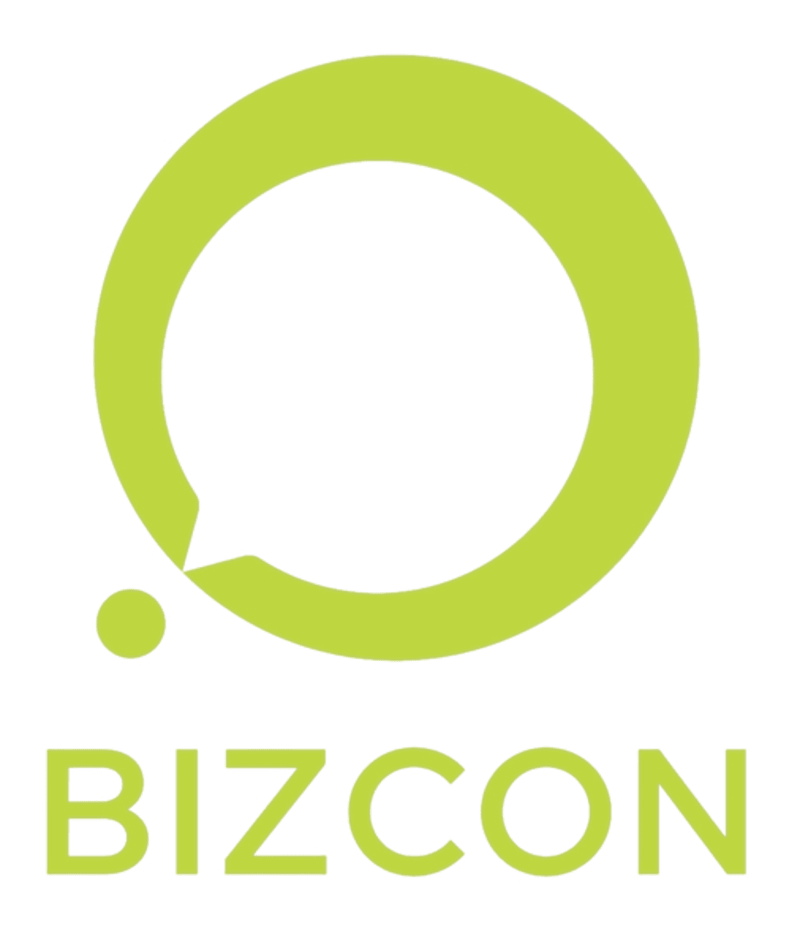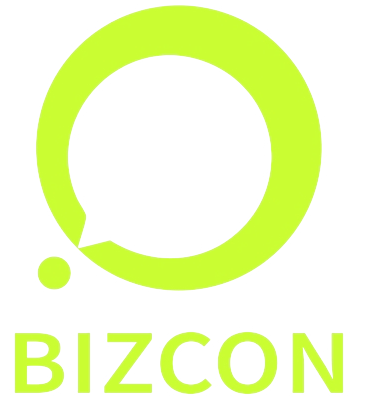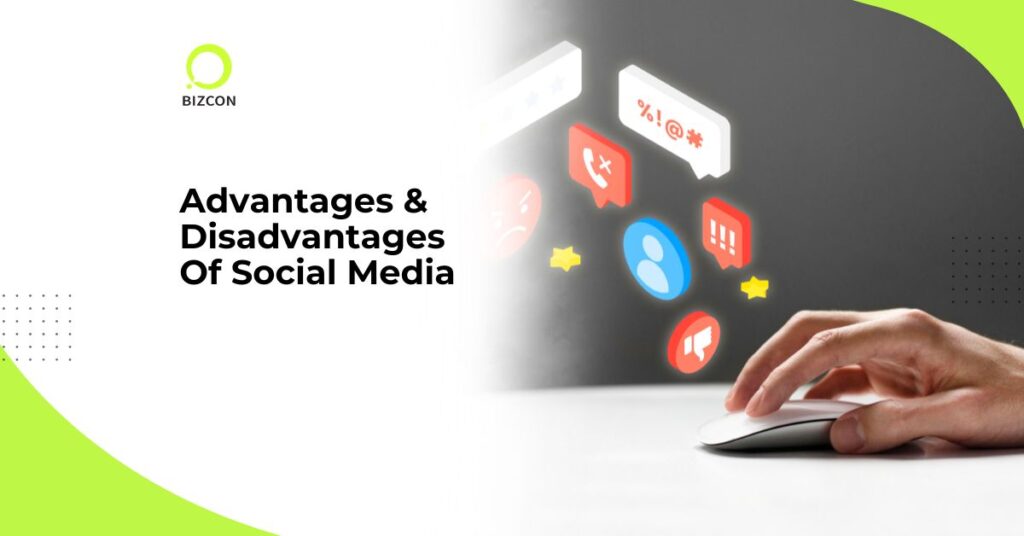Social media’s dual nature makes it a double-edged sword. It offers amazing benefits like enhanced communication and brand awareness but also comes with drawbacks such as privacy issues and mental health impacts. This article covers the main advantages and disadvantages of social media, so you can understand its true impact.
Introduction to Social Media
Social media refers to online platforms and apps that allow users to create and share content, interact with others, and build communities. It has become a dominant channel for communication, expression, marketing, and entertainment. Social media has numerous benefits, including increased brand awareness, lead generation, sales, and customer retention.
What is Social Media?
Social media is a broad term that encompasses various online platforms and apps, including social networking sites, blogs, microblogs, wikis, video sharing sites, and more. It allows users to create and share content, interact with others, and build communities. Social media has become an integral part of our daily lives, with billions of users across platforms like YouTube, Facebook, Instagram, and Snapchat.
Key Takeaways
- Social media enhances communication by connecting people globally, allowing for emotional support and community building.
- It boosts brand awareness and business opportunities through targeted marketing, driving engagement and conversions. Unlike traditional media, which often has a slower pace and limited interactivity, social media provides real-time updates and deeper engagement.
- However, users must navigate privacy concerns, misinformation, and mental health impacts, emphasizing the need for responsible social media usage.
Social Media Advantages
Social media platforms have become a cornerstone of modern life, providing a host of benefits that touch various aspects of our daily existence. Social media’s broad range of benefits includes fostering enhanced communication, increasing brand awareness, providing access to up-to-the-minute news, and opening new business opportunities.
Let’s delve deeper into these benefits.
Enhanced Communication
One of the most significant social media advantages is its ability to transcend geographical barriers, connecting people from all corners of the globe. Whether you’re chatting with a friend on the other side of the world or participating in a video call with family members in different time zones, social media platforms make it effortless. This global connectivity fosters relationships that might otherwise fade over time, allowing users to maintain emotional connections and nurture friendships despite the distance.
Moreover, social media helps build and sustain relationships by offering a platform for ongoing communication. Messaging apps integrated into social media sites provide convenient chat and video/voice call features, breaking down barriers that time zones and geographical areas typically create. This ease of communication is a competitive edge that social media offers over traditional means of staying in touch. Traditional media, such as newspapers and television, often struggle to keep up with the immediacy and interactive nature of social media, making them less effective for real-time communication.
Beyond personal relationships, the platforms also support various support networks and groups where individuals can share experiences and seek advice. These online communities provide a sense of belonging and emotional support, making them invaluable for many users. These interactions not only enhance communication but also foster a sense of community and support.
Increased Brand Awareness
Social media marketing efforts have redefined how brands interact with their audiences. Effective digital marketing strategies allow brands to engage directly with their target audience, creating lasting impressions and increasing brand awareness significantly. With the ability to reach millions with a single post, social media marketing is an interactive and customer-centric approach that stands out in the digital marketing landscape.
Additionally, social media sites enable businesses to reach a global audience, thereby enhancing brand visibility and expanding their market reach. Creative campaigns and user-generated content have the potential to go viral, significantly boosting audience size and engagement. This viral content not only increases brand awareness but also builds brand loyalty by fostering a devoted audience.
Targeted marketing on social media platforms also results in higher conversion rates and better ROI. More than 64% of business owners utilize social media data for audience insights, leading to more effective marketing strategies. Customizing content for various customer segments enhances user experience and boosts overall engagement.
Access to Information and News
One of the main advantages of social media is its role in information dissemination. Social media platforms provide real-time updates on current events, allowing users to stay informed as situations develop. Whether it’s breaking news or trending topics, social media’s instant nature ensures that users have access to the latest information at their fingertips. In contrast, traditional media outlets like newspapers and television are often slower to cover emerging platforms and focus more on headlines rather than in-depth stories.
Moreover, social media fundamentally shapes how we consume information, making it more accessible and diverse. Users can follow people, brands, and news outlets to get quick access to relevant information and industry updates. This ease of information sharing fosters a more informed and engaged public, highlighting the significant role social media plays in our daily lives.
Business Opportunities
Social media platforms offer a plethora of business opportunities that are hard to ignore. From enhancing brand awareness and lead generation to customer retention and sales increase, social media marketing efforts have proven to be highly effective. Open communication through social media helps businesses strengthen client connections and improve products and services based on customer feedback.
Moreover, social media can drive significant website traffic, leading to increased visitors and conversions, ultimately translating into sales. Many businesses use social media for customer service, gathering valuable insights and assisting customers in real-time. This approach not only enhances the company’s reputation but also fosters a loyal customer base.
Influencer Partnerships and Digital Marketing Strategies
Influencer partnerships are a key component of digital marketing strategies. Partnering with influencers who align with a brand’s values can leverage their credibility to promote products or services. Influencer partnerships can boost brand visibility and potential customer acquisition. Social media platforms like Instagram and TikTok are ideal for influencer partnerships, as they offer a vast reach and engagement.
Social Media Disadvantages
While social media offers numerous benefits, it also presents several challenges and risks. Social media’s range of challenges includes issues such as privacy concerns, the spread of misinformation, mental health impacts, and cyberbullying, which are significant disadvantages that users must navigate.
Recognizing these negative aspects is vital for making informed decisions about social media usage.
Privacy Concerns
Privacy concerns are among the most pressing social media disadvantages. Sharing personal information on social media platforms can lead to significant privacy vulnerabilities and potential data breaches. Users often overshare details without realizing the risks, which can jeopardize their privacy and result in data security issues.
Compromising user privacy often stems from the ease with which personal details can be shared and accessed on social media. This oversharing can lead to misuse of sensitive information, making users vulnerable to identity theft and other forms of cybercrime. It’s essential for users to be mindful of the information they share to mitigate these risks.
Spread of Misinformation
The rapid spread of misinformation is a significant drawback of social media usage. False information, such as fake news and propaganda, can easily go viral, influencing public opinion and behavior. This dissemination of false information creates confusion and spreads rumors that can have serious consequences.
The quick spread of false information complicates efforts to verify content, making it challenging for users to distinguish fact from fiction. Common fraudulent activities on social media, including phishing attacks and Ponzi schemes, further exacerbate the issue. This underscores the importance of digital literacy in navigating social media safely.
Social media platforms are implementing features to help users detect unreliable news and misleading content to combat misinformation. Improving media literacy equips individuals to discern credible information and avoid misinformation.
Mental Health Impacts
Excessive social media usage can have detrimental effects on mental health. It can lead to anxiety, depression, and feelings of inadequacy. Many users experience low self-esteem and increased stress levels due to the constant comparison with others’ curated online lives.
Furthermore, high levels of social media interaction can disrupt sleep patterns, leading to issues such as insomnia. Cyberbullying is another significant concern, causing long-lasting emotional distress for victims and negatively impacting their mental well-being.
Cyberbullying and Harassment
Cyberbullying and harassment are pervasive issues on social media platforms. The anonymity provided by social media often facilitates harmful behavior, such as trolling, public humiliation, and harassment. This anonymity can embolden users to engage in negative interactions without fear of consequences.
The emotional impact of cyberbullying on victims can be severe, leading to long-term psychological distress. It’s crucial for social media platforms to implement measures to combat cyberbullying and protect users from harassment.
Time and Resource Intensive Social Media Management
Maintaining an effective social media presence requires a significant investment of time and resources. Creating and curating engaging content, managing multiple social media platforms, and responding to customer inquiries demand continuous effort and a dedicated team. Without proper planning and allocation of resources, social media marketing efforts can become overwhelming and less effective.
Negative Feedback and Reputation Management
Negative comments or reviews can quickly spread across social media platforms, potentially damaging a company’s reputation. A single negative incident or social media backlash can significantly impact a company’s reputation. Effective social media crisis management and proactive reputation monitoring are vital to managing the impact of negative viral content. Responding promptly to negative feedback and addressing customer concerns can help mitigate the damage and maintain a positive reputation.
The Role of Social Media in Personal Branding
Social media has become a vital tool for personal branding, allowing individuals to enhance their career prospects and visibility. Creating a strong online presence, engaging with followers, and showcasing skills and expertise can significantly improve professional perception.
Building an Online Presence
Building an online presence is crucial for job seekers and professionals looking to enhance their visibility. Actively engaging on social media platforms can significantly improve one’s attractiveness to potential employers. It allows individuals to showcase their professional persona and establish a positive personal brand that can influence hiring decisions.
Consistency and reliability in professional social media profiles are essential for building a strong personal brand. Maintaining a consistent online presence ensures a positive and engaging professional image for recruiters and industry leaders.
Engaging with Followers
Engaging with followers is a key aspect of personal branding on social media. Creating valuable and engaging content is crucial for sustaining follower engagement and building a dedicated audience. Interactive content helps brands and individuals develop a more personal connection with their audience.
Regular and thoughtful interactions are essential for building a strong following. Responding to comments and sharing content that resonates with the audience fosters stronger relationships and enhances brand loyalty. This engagement is fundamental to maintaining a vibrant and active social media presence.
Showcasing Skills and Expertise
Social media platforms provide an excellent opportunity to showcase skills and expertise, thereby establishing credibility in one’s field. Sharing relevant content and engaging in industry discussions helps individuals demonstrate knowledge and position themselves as thought leaders.
Monitoring industry trends and adapting content accordingly can further enhance one’s reputation as an expert. This approach not only builds credibility but also fosters meaningful connections with other professionals in the field, opening up new career opportunities and business prospects.
The Impact of Social Media on Community Building
Social media plays a significant role in community building by supporting the formation of online communities and promoting social movements. These platforms enable users to connect with like-minded individuals, discuss important issues, and collaborate on shared challenges, fostering a sense of belonging and collective action.
Forming Online Communities
Social media platforms enable users to establish connections with individuals who share similar interests, encouraging cooperation and social support. User engagement on social media leads to the formation of supportive and active online communities, providing a sense of belonging and mutual assistance.
The emergence of niche communities is a growing trend within social media platforms, allowing users to find and join groups that cater to their specific interests. This fosters a deeper connection and engagement among members, enhancing the overall social media experience.
Promoting Social Movements
Social media acts as a powerful catalyst for promoting social movements and amplifying voices on global issues. These platforms mobilize support and raise consciousness about social issues, facilitating the coordination and dissemination of information related to activism and advocacy.
Providing a platform for individuals and organizations to rally support, social media drives meaningful change and awareness. This role in promoting social movements highlights the positive impact social media can have on society.
Encouraging Collaboration
Social media fosters collaborative efforts among community members to address shared challenges. Online platforms provide tools for brainstorming and developing solutions collectively, enhancing the sense of community and teamwork. Such an environment encourages users to achieve common goals, promoting cooperation.
Such collaboration is not limited to personal interactions but also extends to business and professional settings. Social media networks are powerful tools that encourage collaboration among users in online communities, facilitating the exchange of ideas and fostering innovation.
This collaborative approach can lead to significant advancements and solutions to complex problems.
Balancing the Positive and Negative Aspects of Social Media
Understanding social media’s dual nature is essential for individuals and society, as it offers both advantages like enhanced communication and connectivity, and disadvantages such as fraud, misinformation, and negative mental health effects. Maximizing the advantages of social media while minimizing its disadvantages is crucial for responsible usage. The benefits or harms of social media depend heavily on individual usage patterns.
Consider these strategies to achieve this balance.
Responsible Usage Tips
Setting specific times for social media use can help create a balanced routine and prevent excessive use. Utilizing apps that track your social media usage can identify patterns and limit screen time effectively. Being aware of the signs of social media addiction, such as neglecting responsibilities or feeling anxious when not online, helps in taking proactive measures.
Establishing social media-free hours can foster better relationships and improve focus on important tasks. Setting boundaries ensures social media remains a tool for connection and information without dominating daily lives. This approach promotes healthier and more productive social media usage.
Enhancing Digital Literacy
Social media platforms serve as educational tools that promote critical thinking and responsible online behavior. Educational content on social media helps young users understand online safety and responsible engagement. Critical thinking is essential to navigate the vast amount of information found on social media and combat misinformation.
Enhancing digital literacy equips individuals to discern credible information and avoid the pitfalls of misinformation. Fostering an understanding of online safety and responsible engagement makes social media a positive force for learning and growth.
Leveraging Social Media for Growth
Social media allows individuals to showcase their skills and expertise, positioning themselves as thought leaders in their field. Building an online presence through social media enhances visibility to potential employers and new opportunities. Engaging content is crucial for building meaningful connections and fostering a loyal audience on social media.
Social media marketing efforts help businesses reach a broader audience and build brand loyalty. Balancing social media benefits with strategies that promote well-being and prevent burnout allows users to leverage social media management for growth while maintaining a healthy lifestyle.
Summary
In summary, social media offers a wide array of advantages, including enhanced communication, increased brand awareness, and valuable business opportunities. These benefits are complemented by the ability to access real-time information and build personal brands. However, it is equally important to recognize the potential disadvantages, such as privacy concerns, the spread of misinformation, and cyberbullying.
Balancing the positive and negative aspects of social media is crucial for responsible and productive usage. By adopting strategies for responsible usage, enhancing digital literacy, and leveraging social media for growth, individuals can maximize the benefits while minimizing the risks. Embrace the power of social media wisely, and let it be a tool for connection, learning, and growth.
Frequently Asked Questions
How does social media enhance communication?
Social media enhances communication by breaking down geographical barriers, enabling us to stay connected with friends and family and build relationships worldwide. It’s all about fostering that global connectivity!
What are the main advantages of social media for businesses?
Social media is a game-changer for businesses, boosting brand awareness and providing cost-effective marketing solutions. It fosters direct engagement with customers and offers valuable insights, ultimately driving higher conversion rates and better return on investment.
How does social media contribute to the spread of misinformation?
Social media spreads misinformation by allowing false information to spread quickly, making it hard to verify what’s true. This can significantly shape public opinion in misleading ways.
How can individuals leverage social media for personal and professional growth?
You can truly boost your personal and professional growth by showcasing your skills and expertise on social media. Engaging with your audience and sharing valuable content can significantly enhance your visibility and credibility, leading to exciting new opportunities.


